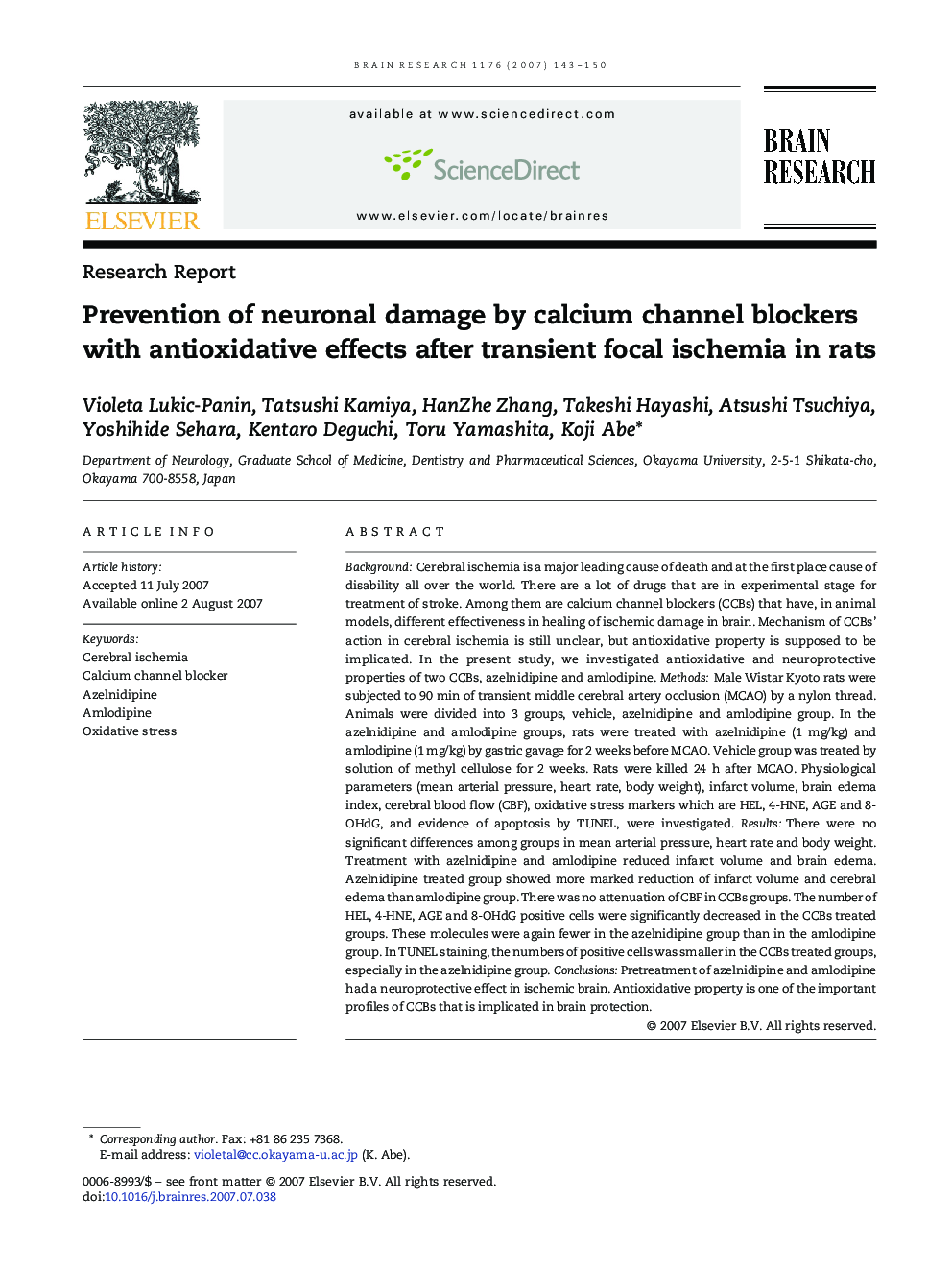| Article ID | Journal | Published Year | Pages | File Type |
|---|---|---|---|---|
| 4330665 | Brain Research | 2007 | 8 Pages |
Background:Cerebral ischemia is a major leading cause of death and at the first place cause of disability all over the world. There are a lot of drugs that are in experimental stage for treatment of stroke. Among them are calcium channel blockers (CCBs) that have, in animal models, different effectiveness in healing of ischemic damage in brain. Mechanism of CCBs' action in cerebral ischemia is still unclear, but antioxidative property is supposed to be implicated. In the present study, we investigated antioxidative and neuroprotective properties of two CCBs, azelnidipine and amlodipine.Methods:Male Wistar Kyoto rats were subjected to 90 min of transient middle cerebral artery occlusion (MCAO) by a nylon thread. Animals were divided into 3 groups, vehicle, azelnidipine and amlodipine group. In the azelnidipine and amlodipine groups, rats were treated with azelnidipine (1 mg/kg) and amlodipine (1 mg/kg) by gastric gavage for 2 weeks before MCAO. Vehicle group was treated by solution of methyl cellulose for 2 weeks. Rats were killed 24 h after MCAO. Physiological parameters (mean arterial pressure, heart rate, body weight), infarct volume, brain edema index, cerebral blood flow (CBF), oxidative stress markers which are HEL, 4-HNE, AGE and 8-OHdG, and evidence of apoptosis by TUNEL, were investigated.Results:There were no significant differences among groups in mean arterial pressure, heart rate and body weight. Treatment with azelnidipine and amlodipine reduced infarct volume and brain edema. Azelnidipine treated group showed more marked reduction of infarct volume and cerebral edema than amlodipine group. There was no attenuation of CBF in CCBs groups. The number of HEL, 4-HNE, AGE and 8-OHdG positive cells were significantly decreased in the CCBs treated groups. These molecules were again fewer in the azelnidipine group than in the amlodipine group. In TUNEL staining, the numbers of positive cells was smaller in the CCBs treated groups, especially in the azelnidipine group.Conclusions:Pretreatment of azelnidipine and amlodipine had a neuroprotective effect in ischemic brain. Antioxidative property is one of the important profiles of CCBs that is implicated in brain protection.
